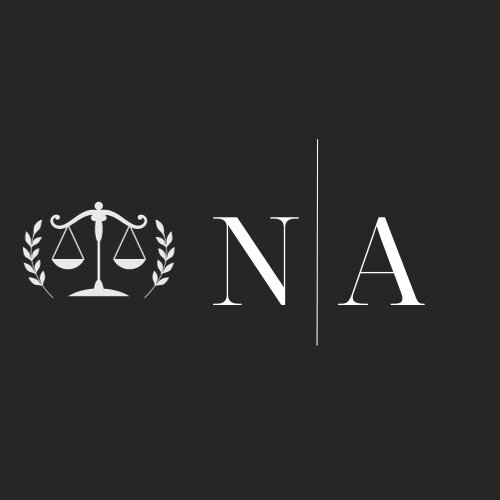Best Motorcycle Accident Lawyers in Beaufort West
Share your needs with us, get contacted by law firms.
Free. Takes 2 min.
List of the best lawyers in Beaufort West, South Africa
About Motorcycle Accident Law in Beaufort West, South Africa
In Beaufort West, South Africa, motorcycle accidents are considered serious traffic incidents due to the high risk of severe injury or fatality. This region, like much of South Africa, sees its fair share of such accidents due to various factors including road conditions, weather, and traffic laws. Legal cases arising from these accidents often involve assessing fault, injury claims, and navigating complex insurance policies. Understanding the nuances of motorcycle accident law is crucial for those affected.
Why You May Need a Lawyer
Engaging a lawyer after a motorcycle accident in Beaufort West is advisable due to the complexities involved in such cases. Common situations requiring legal help include:
- Severe injuries resulting in significant medical expenses or long-term rehabilitation.
- Disputes over fault, which can affect insurance claims and compensation.
- Difficulty in negotiating with insurance companies, which may attempt to minimize payouts.
- Understanding and pursuing claims for additional damages like loss of income or emotional distress.
Local Laws Overview
Several key aspects of local laws in Beaufort West are pertinent to motorcycle accidents:
- South Africa follows a fault-based system, meaning the party responsible for the accident is liable for damages.
- Motorcyclists are required to wear helmets, and failure to do so may affect injury claims.
- There are specific procedures for reporting accidents, including notifying the local police and making insurance claims within stipulated timeframes.
- The Road Accident Fund (RAF) provides compensation to injured road users and can play a crucial role in legal proceedings.
Frequently Asked Questions
What should I do immediately after a motorcycle accident?
Collect evidence such as photos, exchange information with other parties, report the incident to the police, and seek medical attention.
How is fault determined in motorcycle accidents?
Fault is determined based on evidence like witness testimonies, police reports, and accident reconstructions.
Can I claim for injuries if I wasn’t wearing a helmet?
Yes, but not wearing a helmet may reduce the amount of compensation you're eligible for due to contributory negligence.
What is the Road Accident Fund and how does it help?
The Road Accident Fund provides compensation for road accident victims' medical expenses, loss of income, and other related expenses.
When should I contact a lawyer?
Contact a lawyer as soon as possible after the accident to ensure your rights are protected and to assist in collecting evidence.
What types of compensation can I claim?
You may claim for medical expenses, lost wages, pain and suffering, and vehicle damage, among others.
How long do I have to file a claim?
The time limit, or prescription period, generally is three years from the date of the accident, but specific timeframes may vary based on circumstances.
Will I have to go to court?
Not necessarily; many cases are settled through negotiation or mediation before reaching court.
How can I prove the other party was at fault?
Provide evidence such as the police report, witness statements, and any photographic evidence from the accident scene.
What if the other driver doesn’t have insurance?
You can still file a claim with the Road Accident Fund for compensation.
Additional Resources
Consider reaching out to the following resources for assistance:
- Local police department for accident reports and legal advice.
- The Road Accident Fund for claiming compensation.
- South African Law Society for advice on local legal representation.
Next Steps
If you need legal assistance following a motorcycle accident, begin by gathering all relevant documents and evidence. Contact a local attorney specializing in motorcycle accidents to discuss your case and explore potential claims. They can guide you through the litigation process, whether it involves negotiation with insurers or taking the matter to court.
Lawzana helps you find the best lawyers and law firms in Beaufort West through a curated and pre-screened list of qualified legal professionals. Our platform offers rankings and detailed profiles of attorneys and law firms, allowing you to compare based on practice areas, including Motorcycle Accident, experience, and client feedback.
Each profile includes a description of the firm's areas of practice, client reviews, team members and partners, year of establishment, spoken languages, office locations, contact information, social media presence, and any published articles or resources. Most firms on our platform speak English and are experienced in both local and international legal matters.
Get a quote from top-rated law firms in Beaufort West, South Africa — quickly, securely, and without unnecessary hassle.
Disclaimer:
The information provided on this page is for general informational purposes only and does not constitute legal advice. While we strive to ensure the accuracy and relevance of the content, legal information may change over time, and interpretations of the law can vary. You should always consult with a qualified legal professional for advice specific to your situation.
We disclaim all liability for actions taken or not taken based on the content of this page. If you believe any information is incorrect or outdated, please contact us, and we will review and update it where appropriate.








